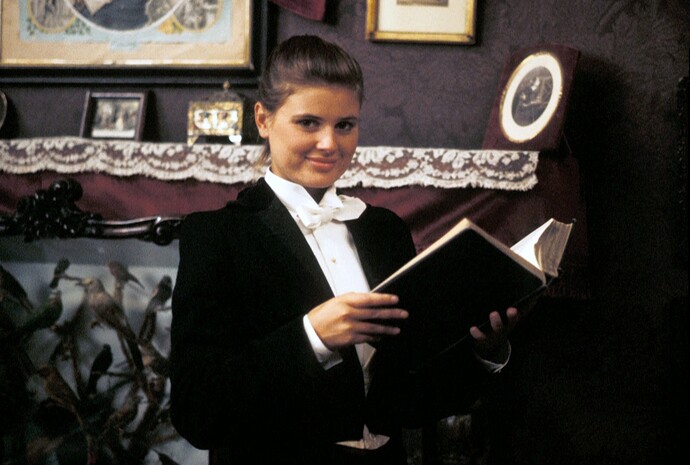I do get your point about Ghost Light, but here’s a summary of Heaven Sent: “The Doctor does the same few things over and over on his own for millions of years”. Sounds pretty boring, but people seem to like it. Ghost Light isn’t in that league, but I enjoy spending time there. I’m lucky.
I think if you go into a Marc Platt story with your main focus being on plot, you are likely to be disappointed. Here’s a review of Cat’s Cradle I wrote when I first read it which talks about this a bit more. It’s incomplete - there’s a note about the Wizard of Oz at the end, so presumably I was going to say something about that, but it’s too long ago and I’ve no idea how the review was going to end. I read the book after Timewyrm: Exodus, because someone recommended that order. It suffers coming just after Timewyrm: Revelation, because it’s a similar style of “rad” novel and Paul Cornell’s debut is one of the best things ever (if that style is your thing). Here we go:
Reading this, I found myself considering the work of Marc Platt in general. Like Paul Magrs but unlike Justin Richards, to pick a couple of prolific examples, he has a very particular style and set of interests. This was his second published work for the franchise, the first being the TV serial Ghost Light (which seems a long time ago now but was less than two and a half years in the past when Time’s Crucible came out). He only produced one more original novel, Lungbarrow, although he also wrote the adaptations of Ghost Light and the fan video Downtime. (Lungbarrow was available for free on the BBC website for some years, and as a result was one of the first Doctor Who books I read. This was, in retrospect, not a good way to encounter it!) Most of Platt’s work has been released on audio by Big Finish, although he’s also written about a dozen short stories and one comic (which I am guessing ties into this book, given the title, Cat Litter, and the fact that it was published later in 1992).
I mentioned style. Platt is very much a worldbuilding writer, with characterisation a secondary interest and plot falling far behind. When the plot emerges naturally out of the world - Spare Parts, for instance - this creates a wonderful sense of coherence. When it doesn’t, he usually tacks on something to keep things moving, but it is clear that this is not where his interest lies. It’s not something I’m particularly focused on, either; so sometimes a story with a weak or generic plot can still resonate with me. I enjoy exploring Platt’s landscapes.
This book is a case in point. Most of the action consists of the Doctor and Ace wandering around the strange world in which they find themselves, trying to figure out what’s going on and how to improve things. Yes, there’s a couple of menaces to face, but even here the threat feels less important than the nature of the antagonists. Technically the resolution is unsatisfying, but it scarcely matters when the imagery and revelations are so arresting. It’s reflected in the prose as well, which is richer than the first two novels in its use of vocabulary and in its structure; this on its own makes for a more enjoyable read.
I also mentioned that there are certain things that Platt is interested in, that he keeps coming back to. Really, they all can be summed up as the mythology of the Doctor Who universe. He has done more than anyone to flesh out the history and nature of Gallifrey and of the Doctor’s life pre-An Unearthly Child, and when he’s not doing that he often looks at the lives of other companions, especially Susan - he was the obvious choice to write the 50th Anniversary Companion Chronicle The Beginning - or expands on various pre-existing aliens’ cultures. It’s not something I want from every story I read or hear, but he does it well and there’s a fannish part of me that responds.
Here is where he lays the groundwork for Lungbarrow. We see a lot of the early days of Gallifrey’s experiments into time travel - including the Pythia’s curse that leads to the controversial matter of later Gallifreyans being loomed instead of born, a little of the rise of Rassilon, and the introduction of the Other.
This is a huge step up from the first two Timewyrm novels!
Published:
Date: 20th February 1992
ISBN: 0-426-20365-8
Rating:
Mine: 7/10.
2013 Gallifrey Base Non-Dynamic Rankings: 6.66, 32nd out of 61 New Adventures, 446th out of 883 overall.
![]()
